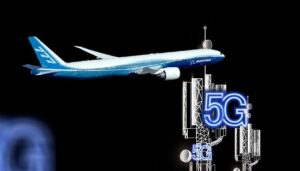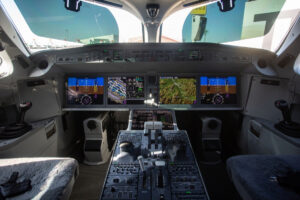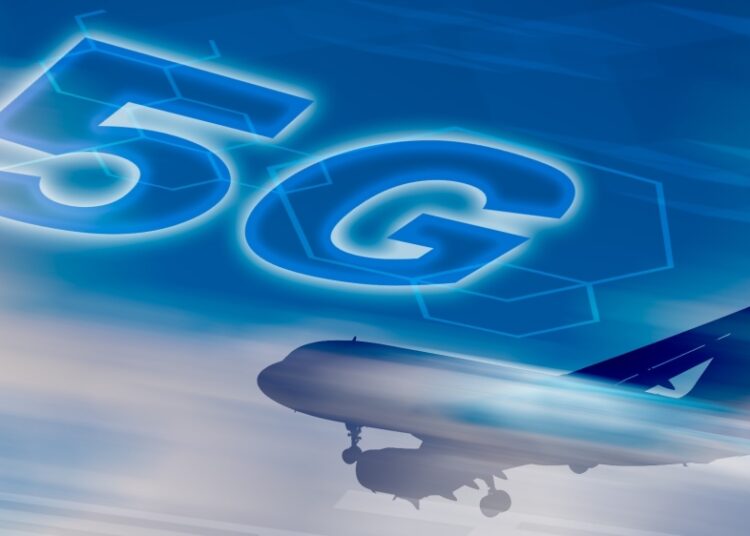
By Mohamed Attia
The aviation industry in the world is witnessing a state of concern with the start of operation of the new technology for the fifth generation communication networks in the United States.
Airlines, especially in the US, are increasingly concerned about the interference of frequencies and signals from the fifth generation towers with the frequency waves used in air navigation devices, which may affect the devices used to measure aircraft altitudes as well as the safety of flights during landing operations, especially during bad weather conditions.

The European aircraft manufacturers Airbus and the American company Boeing have expressed their concern about the deployment of fifth generation technology in the US.
Airbus said that it had sent a joint report, in coordination with Boeing, to the US Department of Transportation, in which the two companies expressed concern about the possible disruption of their aircraft’s equipment due to fifth generation technology.
The two companies explained in the report that the frequencies emitted by this technology could interfere with the frequencies on which altimetres are operating, which measure the distance the plane travels above the ground, which facilitates automated landings and helps monitor dangerous wind currents.

On the other hand, the heads of the 10 largest American airlines warned of catastrophic disruptions in the transportation and shipping sectors in the event of operating the fifth generation networks before making the necessary updates and changes.
American airlines have confirmed that this technology may disrupt up to four percent of daily flights.
United Airlines CEO Scott Kirby confirmed that directives to operate the fifth generation network will prevent the use of radio altimetres at about 40 of the largest US airports.
He called on airlines to remove the fifth generation networks for about three kilometres from the runways of the airports that will be affected, according to regulations issued by the Federal Aviation Authority before launching the service at the counting distance to ensure flight safety.

The companies said that aircraft factories confirmed that a large part of the airline fleet may be out of service. In addition to this, chaos at the local level and the lack of aircraft can affect flights, leaving tens of thousands of passengers stranded in various countries of the world.
Verizon and AT&T have postponed the launch of the new fifth-generation C-Band service twice due to warnings from airlines and aircraft manufacturers that the new communications system will interfere with devices used by aircraft to measure altimeters, as they fear interference from generational signals.
The work of the network has been delayed several times, due to concerns raised by airlines, for the launch of fifth generation networks, from the end of last year, to the beginning of this month.
It may be postponed again and the trade union of the wireless communications sector in the United States – known as CTIA – has said that 5G networks are secure, accusing the aviation sector of raising fears and distorting facts.
For her part, the Executive Director of the Telecommunications Union, Meredith Baker, said that the delay will cause real harm, because postponing the offering for one year will result in a loss of 50 billion dollars in economic growth.
The two companies said they agreed to place the towers in buffer zones around 50 airports in the United States, similar to those used in France, for a period of six months to reduce the risk of interference, but the airlines say that the frequencies on which the 5G network will spread in Europe are lower than those offered in the United States.
American telecommunications companies have invested billions of dollars in developing mobile service networks and the Internet compatible with the fifth generation, which is characterized by higher speed and wider connectivity.






Discussion about this post